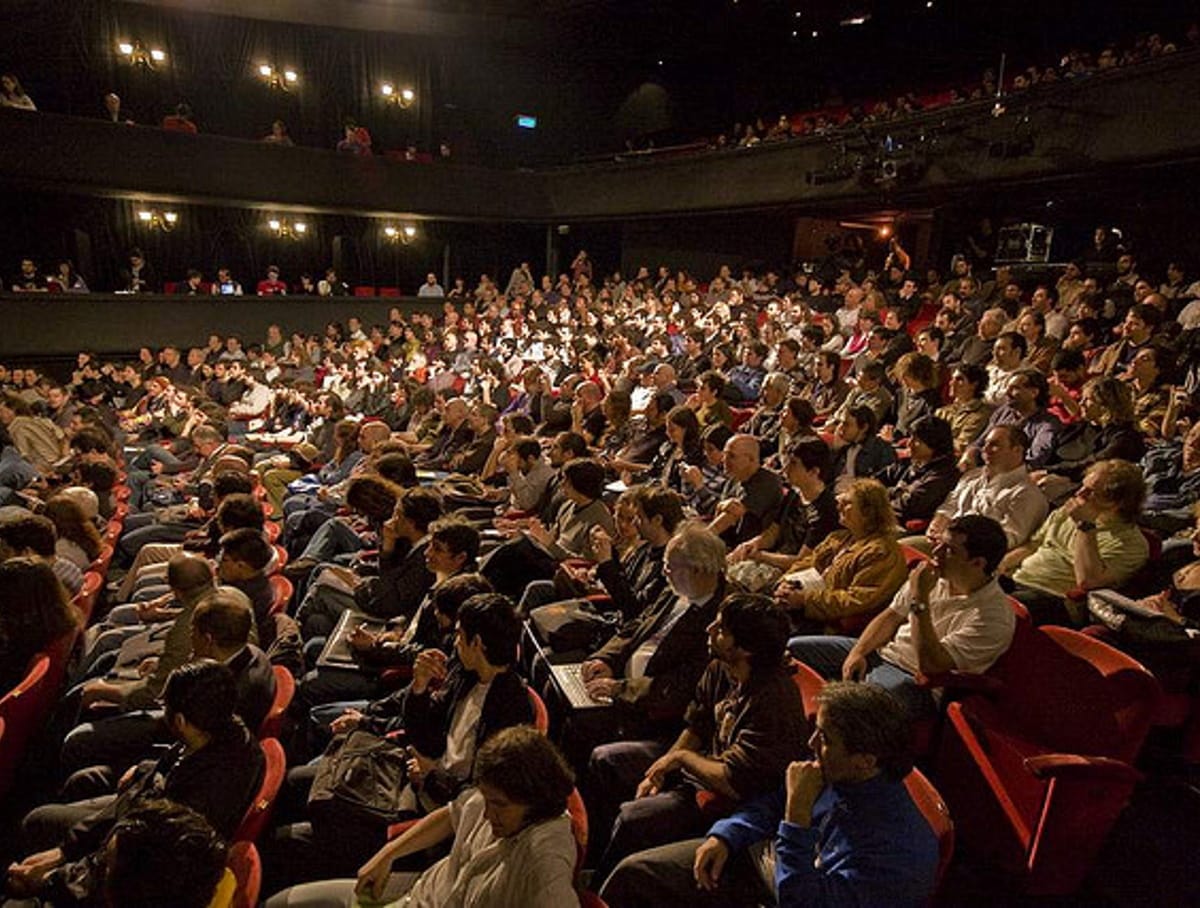From time to time, people mention a somewhat unusual local law as an example of how freedom of speech has its limits even in the United States. We checked whether such legislation actually exists in the United States.
In 2011, during a meeting with Russian students, US Deputy Secretary of State Michael Posner noted that restrictions on the Internet should be treated in the same way as freedom of speech: “In the USA there is a law that prohibits shouting “fire!” with a large number of people nearby." Director of the Ukrainian Film Club at Columbia University (New York) Yuri Shevchuk in 2015 reported that "the US Constitutional Court has confirmed... a citizen has no right to shout 'fire!' in a packed cinema." But on the portal “Gazeta.ru» and in the article “Freedom of Speech” on the website AlegsaOnline.com it is argued that such a decision was once made not by the Constitutional Court, but by the Supreme Court of the United States. Expert at the Valdai International Discussion Club Rain Muellerson in 2017, he called this ban the only restriction on freedom of speech in the United States. Users also wrote about a similar limitation in social networks.
Freedom of speech is a core value for the United States of America, as reflected in federal law. First Amendment The Constitution of the United States states: “Congress shall make no law establishing any religion, or prohibiting the free exercise thereof, or abridging the freedom of speech or of the press, or the right of the people peaceably to assemble, and to petition the government for a redress of grievances.” However, due to the absence of a definition of the concept of “freedom of speech” in the Constitution, certain cases periodically become the subject of consideration by the US Supreme Court (there is no body called the Constitutional Court in the country), and the decisions made have the force of precedent.
So, on the official website of the US judicial system you can to knowthat freedom of speech includes the right:
1. do not speak (including not salute the flag);
2. wear an armband to school to protest against the war;
3. use certain offensive words and phrases to convey political messages;
4. donate money to political campaigns;
5. advertise commercial products and professional services (with certain restrictions);
6. carry out symbolic actions (for example, burning a flag as a sign of protest).
Conversely, freedom of speech does not include the right to:
1. incite illegal actions;
2. produce or distribute obscene materials;
3. burn draft cards as a sign of anti-war protest;
4. allow students to publish articles in the school newspaper over the objections of the school administration;
5. make obscene speech at an event of an educational institution while being its student;
6. speak out in support of illegal drug use at an educational institution event while being a student.
As you can see, the case we are interested in is not mentioned in this selection of examples. However, incitement to illegal acts and anti-war protests are directly related to two historical cases that are important for our analysis. Both cases are related to Espionage Act 1917, which made it punishable to do anything that interfered with US military operations, including speaking out against conscription. The persons involved in the cases were Eugene Debs - a pacifist who opposed the First World War, and Charles T. Schenk - General Secretary of the Socialist Party of the USA, who, through brochures, persuaded those liable for military service to refuse service. Despite defense lawyers' attempts to invoke the First Amendment, both suspects were found guilty, and in the Debs case (1918), prosecutor Edwin Woertz, drawing a parallel, stated: "If in a crowded auditorium or theater a person shouts 'fire!' in his absence and as a result of panic someone is trampled to death, then this person can rightly be accused of committing murder.”
Through appeal, the case reached the Supreme Court, where in 1919 Justice Oliver Wendell Holmes Jr. upheld the lower court's decision. Obviously, he was well acquainted with the materials of the Debs case, because a week before the hearing of the appeal, already at the trial in the Schenk case, he supported his argument with an identical analogy: “Even the most stringent protection of free speech cannot protect a person who falsely shouts “fire!” in a crowded theater and thereby cause panic."
As we see, in the phrase of Holmes Jr. there is a significant detail that distinguishes it from the version we are considering: the lawyer spoke only about false cries of “fire!”, and not about justified ones. It is equally important that this phrase - both in the version of Holmes and in the version of Woertz - was nothing more than an analogy and did not contain any reference to a specific law. It was after it was voiced by the eminent lawyer Holmes that the expression “shout “fire!” in a crowded theater" became winged (as in English, and in Russian language) and has since been used in situations where a person wants to make it clear that freedom of speech is not unlimited. For example, in 2021 it used US President Joe Biden, saying that no amendment to the Constitution is absolute. Nevertheless, as we have seen, in parallel with the idiom lives the idea of a certain decision of an American court regarding the cries of “fire!” in a crowded theater.
Did American judges in the 1910s have any reason to draw such analogies? Undoubtedly. At the turn of the 19th and 20th centuries, false fire calls caused dozens of incidents loss of life in public places in the USA and UK. In only two incidents in 1911 and 1913 in Pennsylvania and Michigan, the number of victims in artificially provoked stampedes totaled about 100 people. So the image of an intruder shouting “fire!” in the theater, at that time was quite stable and suggested an analogy.
Of course, persons who deliberately and without reason cause panic in public places, initiating dangerous stampedes with their shouts (including about fire), are responsible before American law. This is reflected in legislation at the level of many states - for example, in Ohio (in two places), Washington (in two places), Colorado or California. However, the man who shouted “fire!” (or “bomb!”) in a crowded theater, charges are likely to be brought not so much for the exclamation itself, but for its consequences (for example, panic or people being injured in a stampede), and then only if there was no fire. Moreover, if it is possible to prove that a person made a mistake, then, according to words First Amendment lawyer Nashwa Gevaili, he will be acquitted. Such legislative acts do not conflict with the concept of freedom of speech, and the lawyer whose comparison on this topic became popular did not have any specific US federal law in mind.
Cover photo: Wikipedia.
Mostly not true
Read on topic:
- Is it true that in the USA it is against the law to cut off labels from mattresses and pillows?
- Is it true that the sale of Kinder surprises is prohibited in the USA?
- Carlton F.W. Larson. "Shouting 'Fire' in a Theater": The Life and Times of Constitutional Law's Most Enduring Analogy
If you find a spelling or grammatical error, please let us know by highlighting the error text and clicking Ctrl+Enter.






